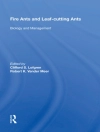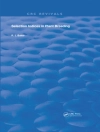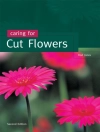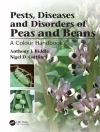Nanobiotechnology in agriculture is a new knowledge area that offers novel possibilities to achieve high productivity levels at manageable costs during the production and merchandising of crops. This book shows us how we can use the cutting-edge knowledge about agriculture, nanotechnology, and biotechnology to increase the agricultural productivity and shape a sustainable future in order to increase the social welfare in rural areas and preserve the environmental health. Specialists from several countries will provide their feedback on a range of relevant topics such as environment-friendly use of nanofertilisers, nanodevices, nano-food packaging, nanocoating and nanocarriers and their relationship with the modern agriculture.
قائمة المحتويات
Section 1 – Agronanobiotechnology, the impacts on agriculture.- 1 – The Agronanobiotechnology in the agro-food industry to preserve the environmental health and improving the welfare of farmers.- 2 Shaping a sustainable future with nanobiotechnology in agriculture.- Section 2 – Agronanobiotechnology studies under laboratory, field and greenhouse conditions to improve crop yields.- 3 Agronanobiotechnology as a new strategy to strengthen agriculture.- 4 Nanoencapsulation of inseticides for pest and disease control in crops.- 5 Agronanobiotechnologies to decrease the damage caused on crops by abiotic and biotic factors.- 6 Design and production of nanofertilizers.- 7 Nanofertilizers and their controlled delivery of nutrients.- 8 Incorporation of plant nutrients into nanoparticles: the real benefits.- 9 Effect of nanoparticles on the growth and development of crops.- 10 Agronanobiotechnologies improving the quality of soil.- 11 Agronanobiotechnologies to improve the water quality in irrigation systems.- 12 Effect of nanoparticles on plants, earthworms and microorganisms.- 13 Agronanobiotechnologies as a useful tool in crop breeding.- 14 Nanodevices and nanocarriers in the agriculture.- Section 3 - Nanobiotechnology in agriculture and their advere effects and legal framework.- 15 Agronanobiotechnologies and their environmental effects.- 16 Agronanobiotechnologies and consumers’ human rights.- 17 Strategic assessments for an emerging technology.- 18 Legal framework on agronanobiotechnology throughout the world.
عن المؤلف
Dr. Fernando López-Valdez is currently a Full Professor at the Research Centre for Applied Biotechnology at the Instituto Politécnico Nacional, in Mexico. He has a Bachelor degree in Chemical Engineering from the Universidad Veracruzana, M.Sc. and Ph.D. in Biotechnology from the CINVESTAV, México. For about 18 years he has been acting as postgraduate professor, teaching Physical-Chemistry, Chemistry, Agricultural Biotechnology, Environmental Biotechnology classes, among others. He has been published about 20 articles with high impact peer-reviewed journals, he also published five book chapters and one book as editor. He has acted as reviewer and editor for over 17 Journals, and co-Editor for an International Symposium (Biotechnology Summit 2012, 2014 & 2016). Currently, he conducts research in the areas of Environmental & Agricultural Biotechnology on topics as wastewater sludge as organic fertilizer, their ashes (as mineral fertilizers) and nanoparticles, as well their effects on the soil properties and growth plants, under laboratory or greenhouse conditions.
Dr. Fabián Fernández-Luqueño is a Full Professor at Center for Research and Advanced Studies of the National Polytechnic Institute, Mexico. He received his Bachelor degree in Engineering in Soil Science from Universidad Autónoma Chapingo, Mexico, a M.Sc. in Edaphology from Colegio de Postgraduados, Mexico and a Ph.D. in Biotechnology from Cinvestav, Mexico. His professional expertise has been in the academic sector as a Full Professor and Scientific Coordinator at Universidad Tecnológica de Tulancingo and recently as a Full Professor and Academic Coordinator at Cinvestav Saltillo. His research area is the plant-environment interactions, but he is also interested in the effect of nanoparticles on crops, soils, and microorganisms. Dr. Fernández-Luqueño has authored and co-authored more than 35 scientific papers in international journals, eleven books, and twelve book chapters. Besides, he has acted as a reviewer for high impact peer-reviewed journals.












